National Forensic Mental Health Service wins RIAI Award
National Forensic Mental Health Service has been presented with the Wellbeing Award by the Royal Institute of the Architects of Ireland, in their annual RIAI Architecture Awards.
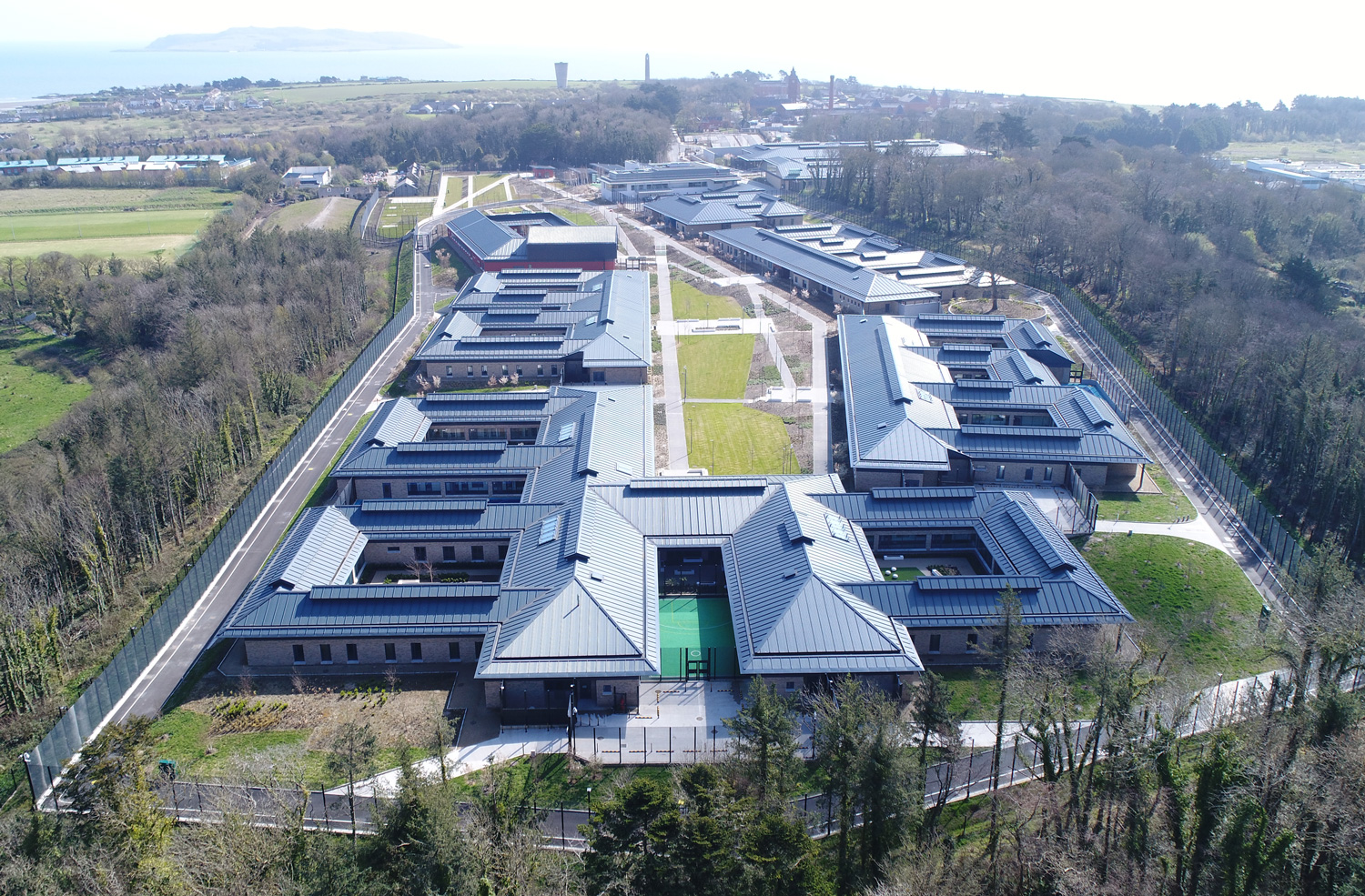
The prestigious event recognises the highest quality in current work by RIAI Members and their collaborators, and celebrates the contribution that architecture makes to society for everyone’s benefit.
In presenting the accolade, the judges said: “The National Forensic Mental Healthcare Facility successfully creates a balance between a secure setting and a therapeutic care environment. While dealing with a challenging and complex brief, the scheme has been executed with great sensitivity which maximises light and the user’s connection to nature at every opportunity. An exemplary project within its field, the design has maximised the potential of the brief and delivered a noteworthy scheme. From the wider scale campus layout to the individual courtyard dwellings, the design allows for connection, aesthetic quality, and a sense of community.”
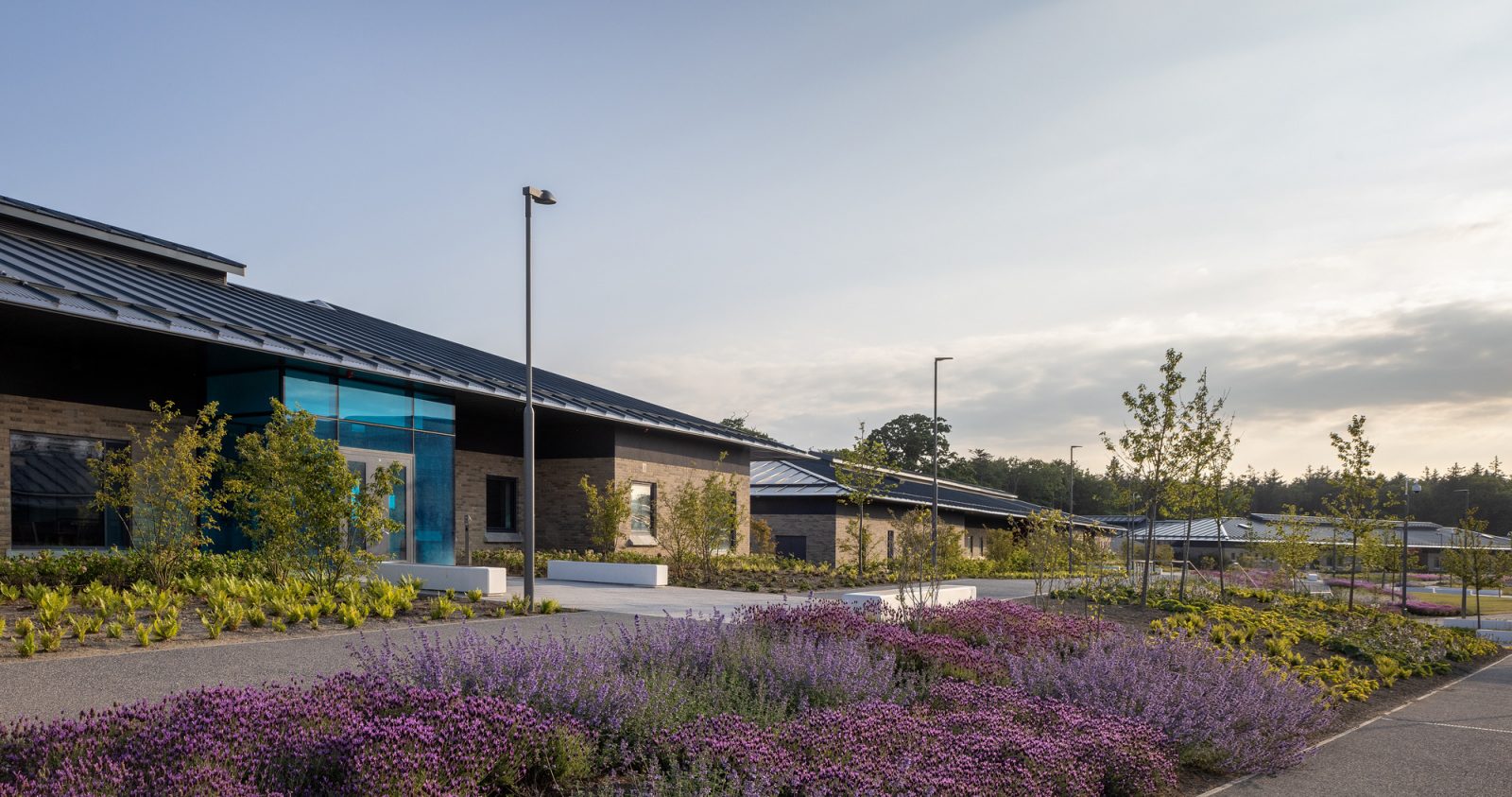
Ward buildings are organised around a 'village green', which can be used for sports, shared recreation and outdoor therapy.
Located on a landscaped site to the north of Dublin, National Forensic Mental Health Service accommodates 170 high, medium and low secure mental health beds, including dedicated facilities for male adult; female adult; child and adolescent; mental health intellectual disability; intensive care rehabilitation healthcare; and pre-discharge services.
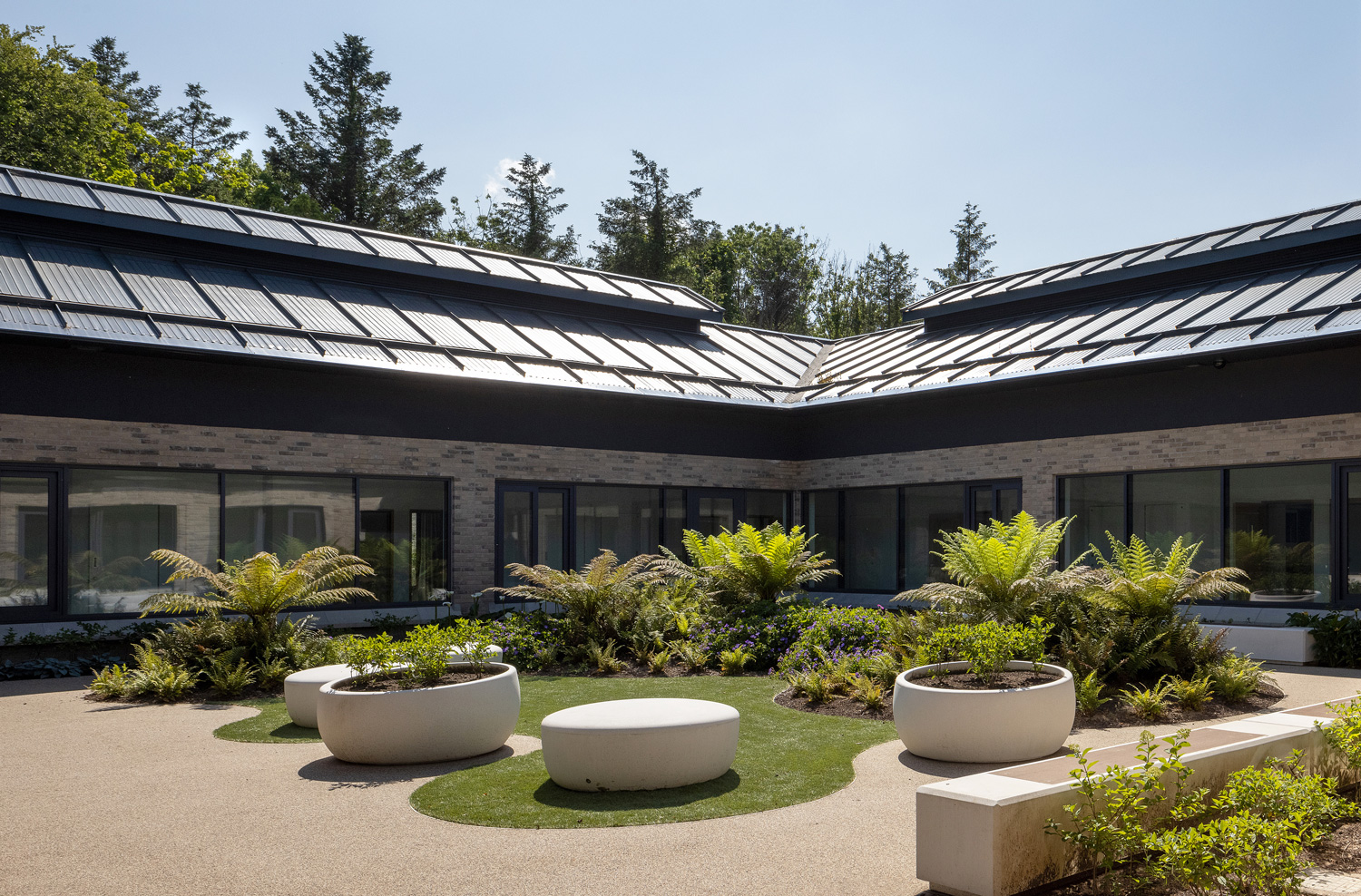
A series of courtyards and secure perimeter gardens provide patients with direct access to nature.
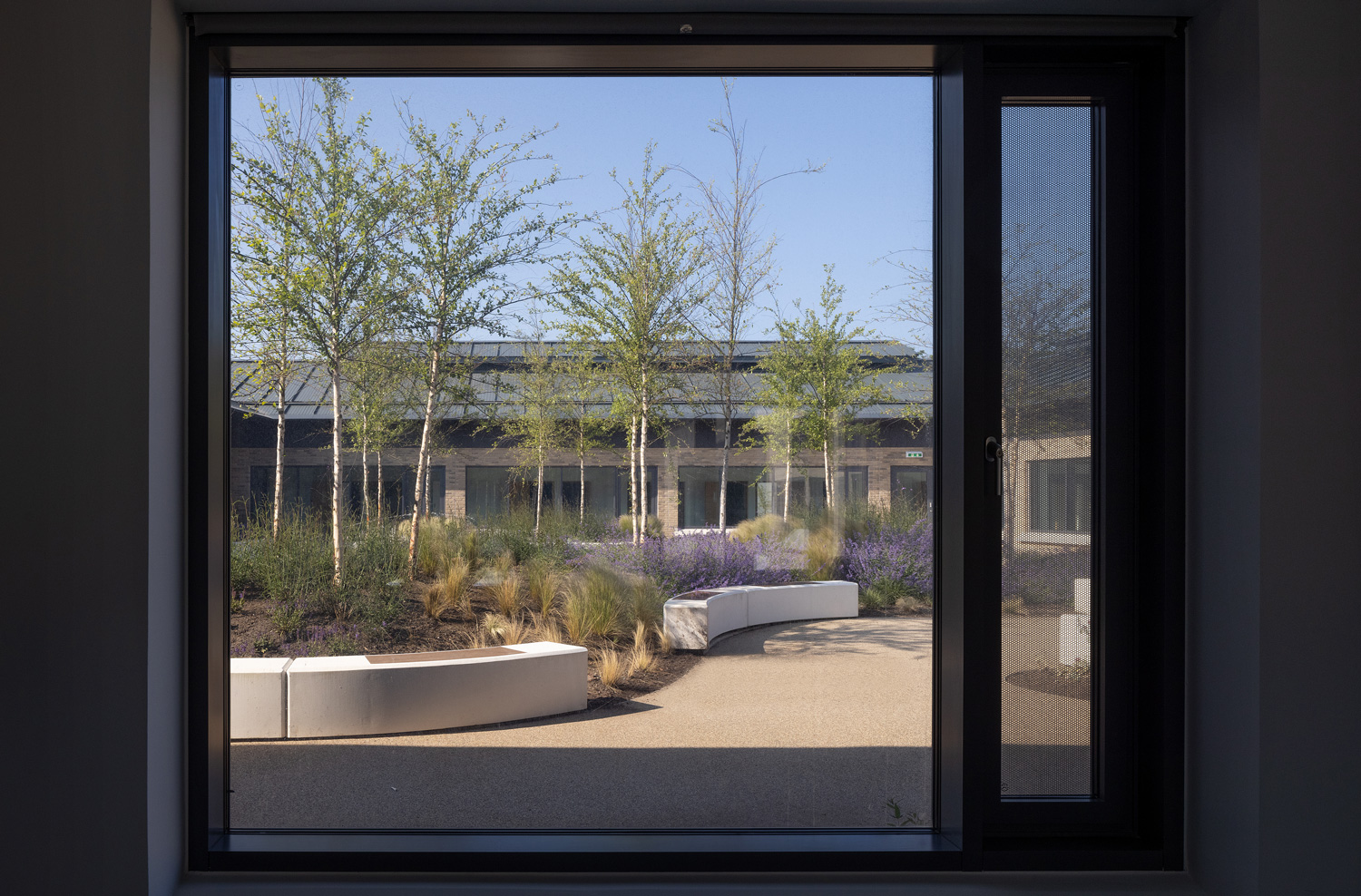
Views to the courtyards and gardens are maximised from inside the wards.
Accessed through a spacious and welcoming reception building, the hospital, which was designed in association with Scott Tallon Walker Architects for HSE Ireland, is laid out as a series of single storey pavilion buildings around a pedestrianised ‘village green’. This achieves intuitive wayfinding through a site-wide narrative of colour, art and landscaping, creating a therapeutic environment for recovery.
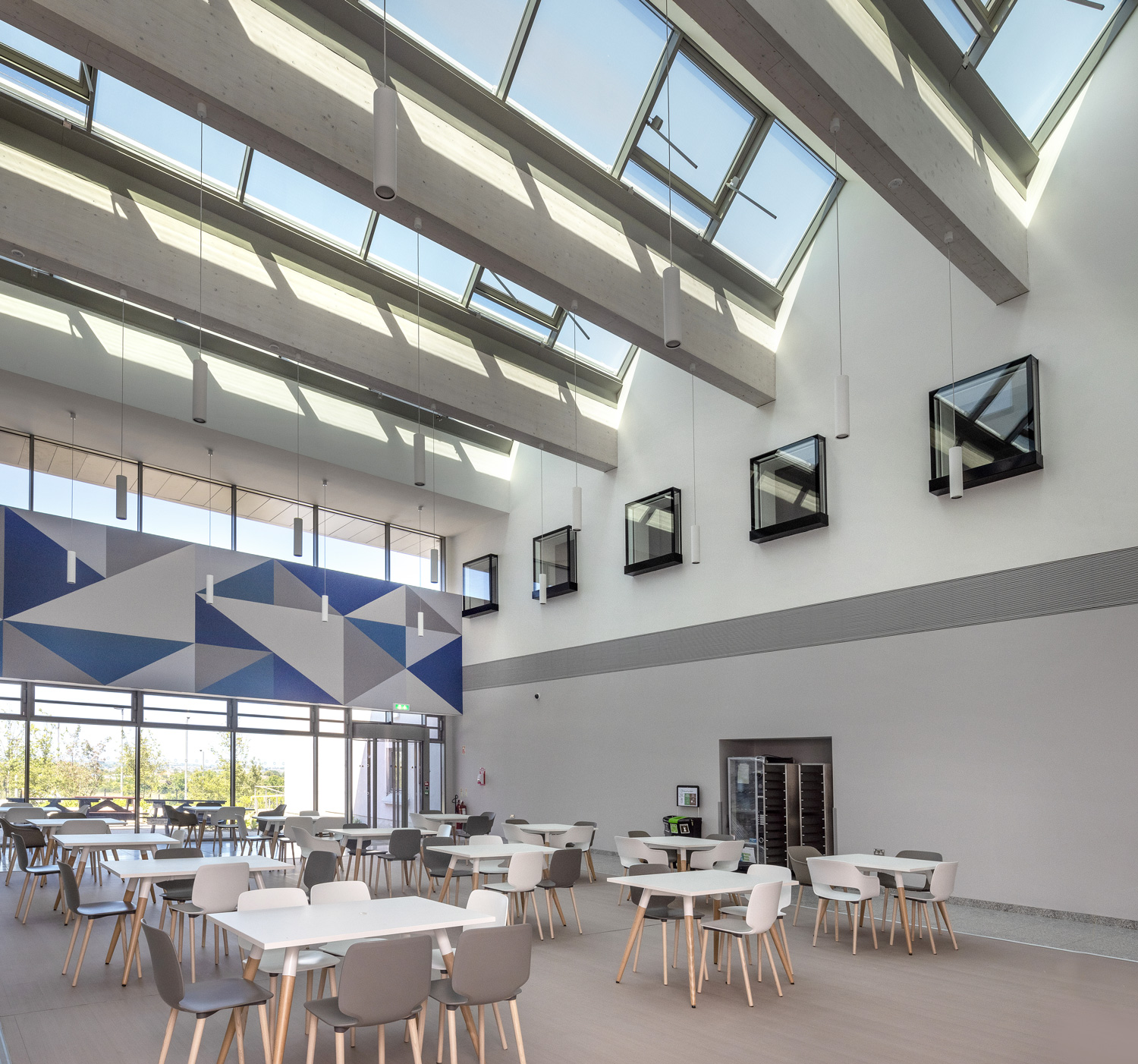
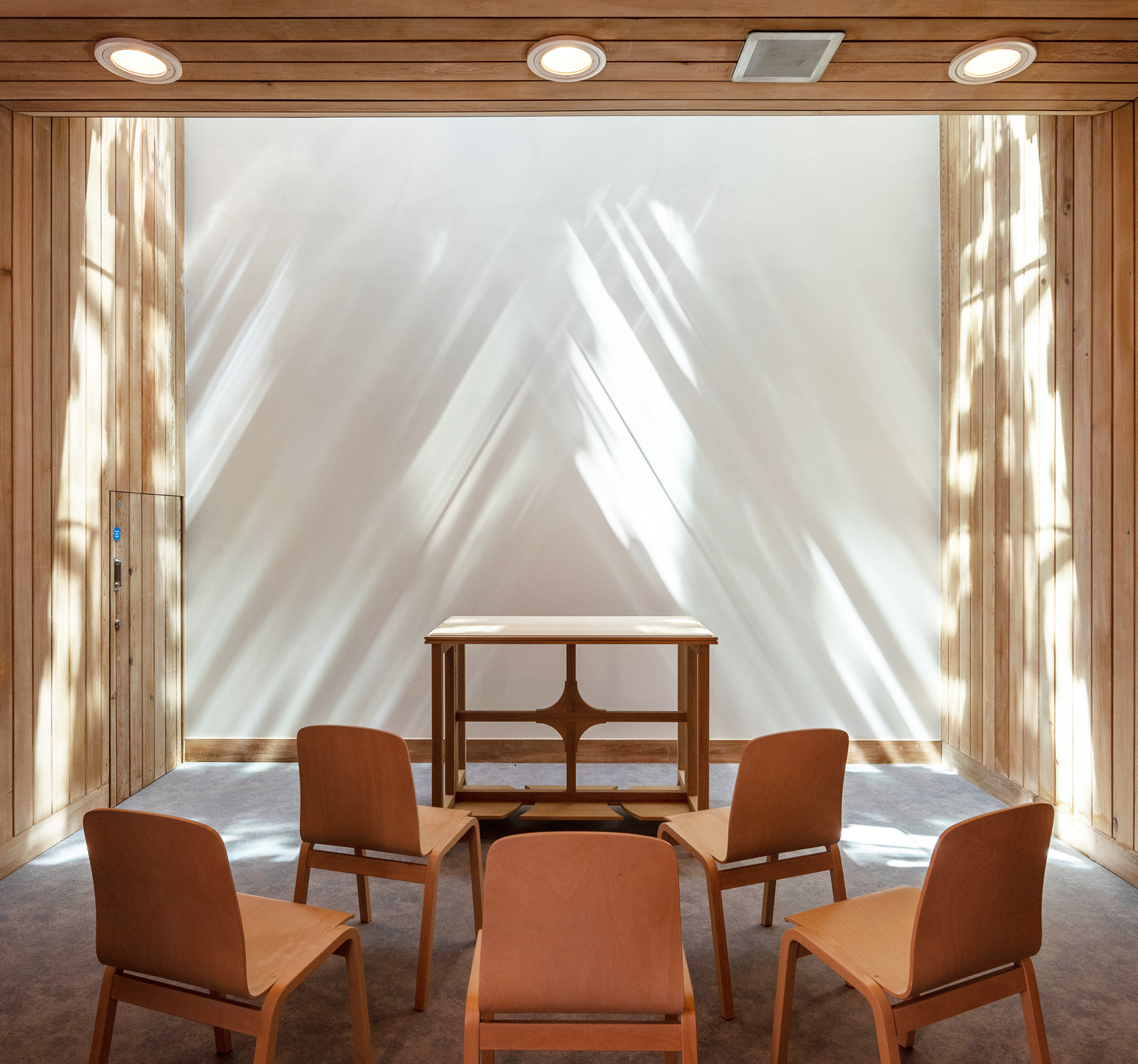
The interior design strategy uses colour, art and light to create a therapeutic environment for recovery.
This is the result of a successful 10-year collaboration with Scott Tallon Walker Architects and the project team. We began with a brief for a very large, potentially institutional hospital at 24,500m² and explored how to create a scale that patients would feel they could relate to. The result creates a very real sense of community and enables the service to focus on the patient’s therapeutic programme of recovery.